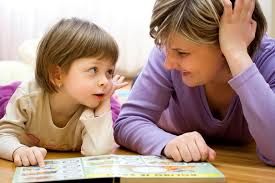Inclusion for children with additional needs

Inclusion in early childhood is vital.
Inclusion means supporting children and ensuring all children have equal access and have the opportunity to participate in everyday life.
A child who has additional needs is a child who needs additional or extra support or assistance to participate fully.
If your child has a disability, developmental delay, challenging behaviour or an additional need seeking support and adopting various supportive strategies can assist in the day to day lives of you and your child.
Supporting a child and family enables the feeling of inclusion.
Inclusion is about adapting ways to ensure all children are included.
The key element is that inclusion is not just for some children.
Inclusion is about changing and challenging current practices to provide a space where all children feel value and respected and all children can participate.
Inclusion is not a once off thing. Inclusion includes the process of support, educating others and developing and implementing a variety of strategies and approaches.
Additional support needs can be short or long term.
Practical strategies for supporting children with special needs are essential for both yourself and your child.
It is key to ensure health and well being is maintained and the provision of achieving more positive outcomes and genuine inclusion.
There may be daily struggles and challenges along with some precious moments and buckets of love.
Benefits for children of inclusive practices
Inclusive practices are very important.
There is definite impact to the educational outcomes for children.
There are many benefits for a child.
- It better prepares a child for later life.
- It looks at what a child can do rather then their limitations or what they can’t do.
- Working together to develop goals for the individual child according to their abilities.
- Children feel a sense of belonging to their community.
- Successful inclusion attempts to develop an individual’s strengths and gifts.
- it fosters a sense of respect and belonging.
Strategies for supporting a child with additional needs
Implementing the correct strategies can contribute to the child feeling valued and included. They can contribute to an overall inclusive environment.
- Provide experiences and accessible play at the appropriate level.
- Never allow yourself to feel ‘sorry’ for the child and that to reflect through. Feel compassion or unfairness or even anger but never sorrow and never allow the child to feel your emotions in that way. They don’t want or need your pity.
- Always be honest and give honest feedback appropriate to the individual.
- Encourage their effect and not their outcome- it is the process not the product.
- Become familiar with the individuals needs and their condition.
- Take a team approach so that you and those involved in the care of the child are united.
- Allow the child to be as independent as possible.
- Don’t underestimate their abilities and/or persistence.
- Respect the child’s identity and difference.
- Accept and be aware your own limitations.
- Acknowledge the difficulties but don’t pity or patronize those that are directly affected.






